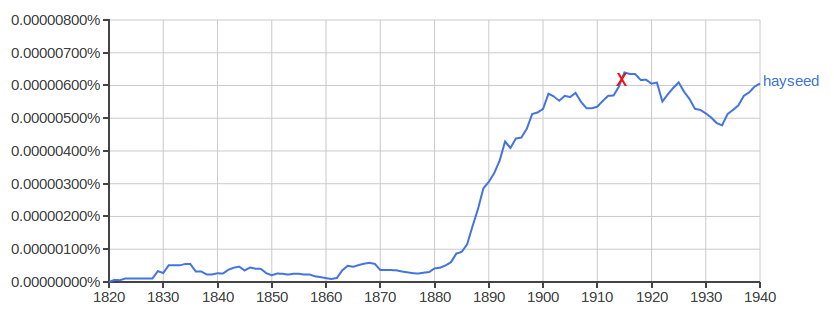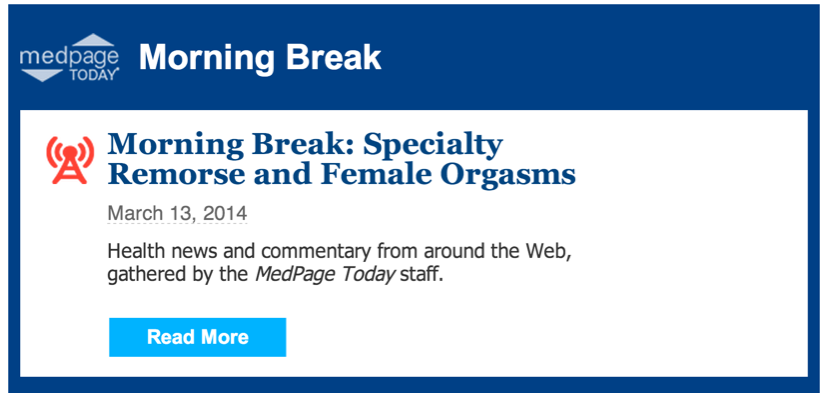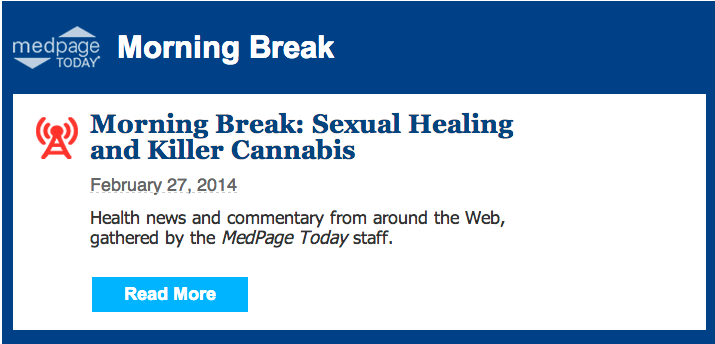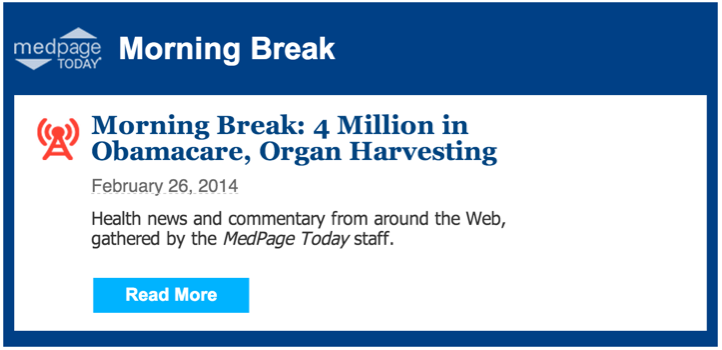Checking some predictions
Tom Friedman is merely the latest commentator to turn a claim about conceptual change into a claim about word frequency. Thus Amanda Stoltzfus, "The Way And The How Of Teaching Domestic Economy In The County Public School", Proceedings of the Fourth Annual Session of the Texas State Farmers' Institute, 1914:
This is the day of the farmer. The vocation of farming is being dignified and respected by everybody. The Bankers' Association has recognized the importance of this industry to the rest of the country and is striving to help put agriculture upon a sound basis through a special agricultural committee. The term "hayseed" has been dropped from our vocabulary since a worldwide interest in country life has been awakened by the farm life commission. The word "farmer" is" becoming a synonym for intelligence, because today the man who succeeds on the land must work along scientific lines—more and more intensively, and less extensively. The world is realizing that the study of agriculture includes a bigger combination of sciences than any other study unless it be domestic economy; and that it requires more brains to be a farmer than it does to be anything else unless it be the farmer's wife, who presides over the farm home without which the farmer might as well go out of business.
Google Books doesn't have a "Texas" corpus, alas, but checking the general run of English-language books suggests that Ms. Stoltzfus got the pre-1914 direction of change pretty much backwards:

Read the rest of this entry »


